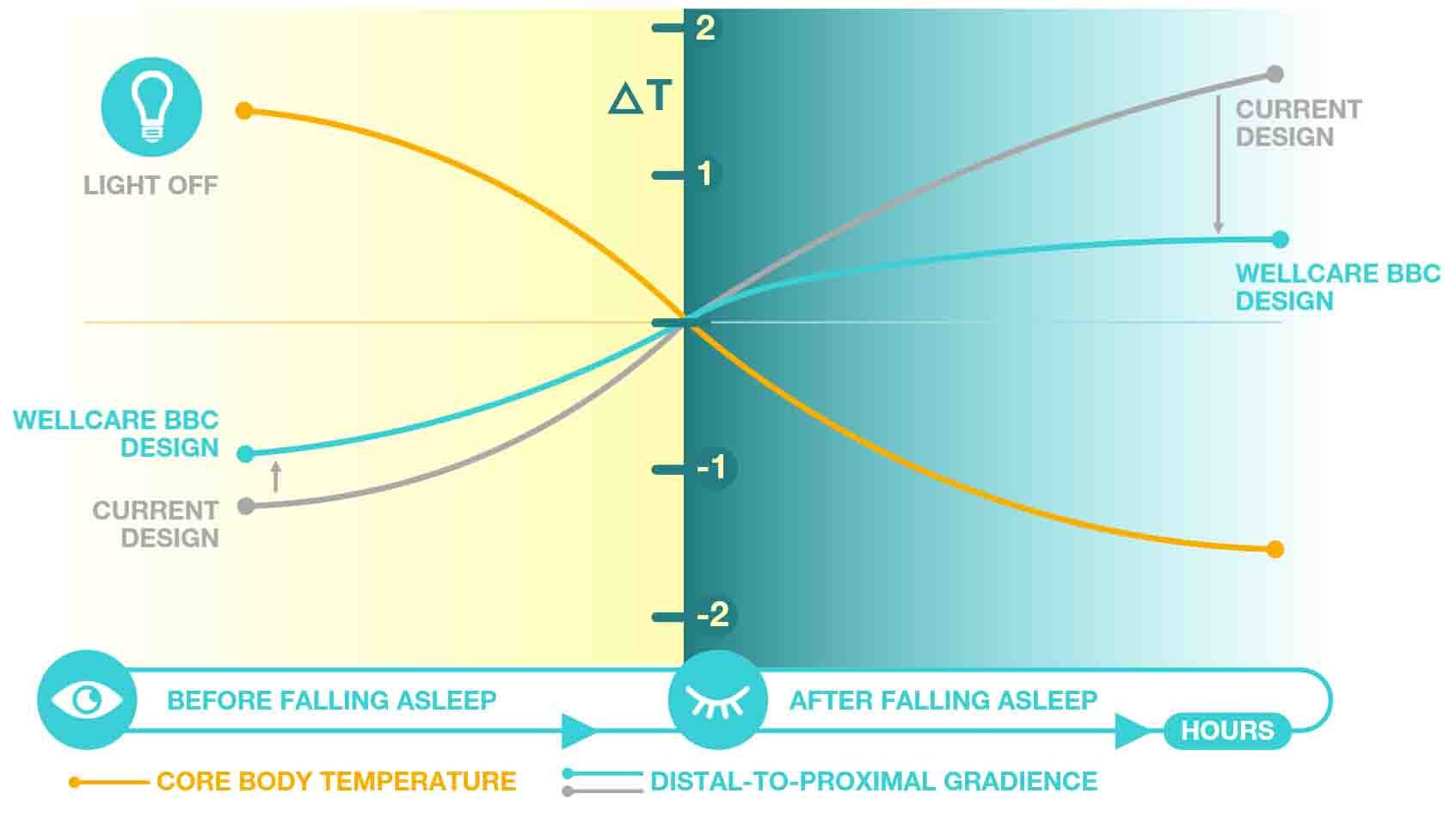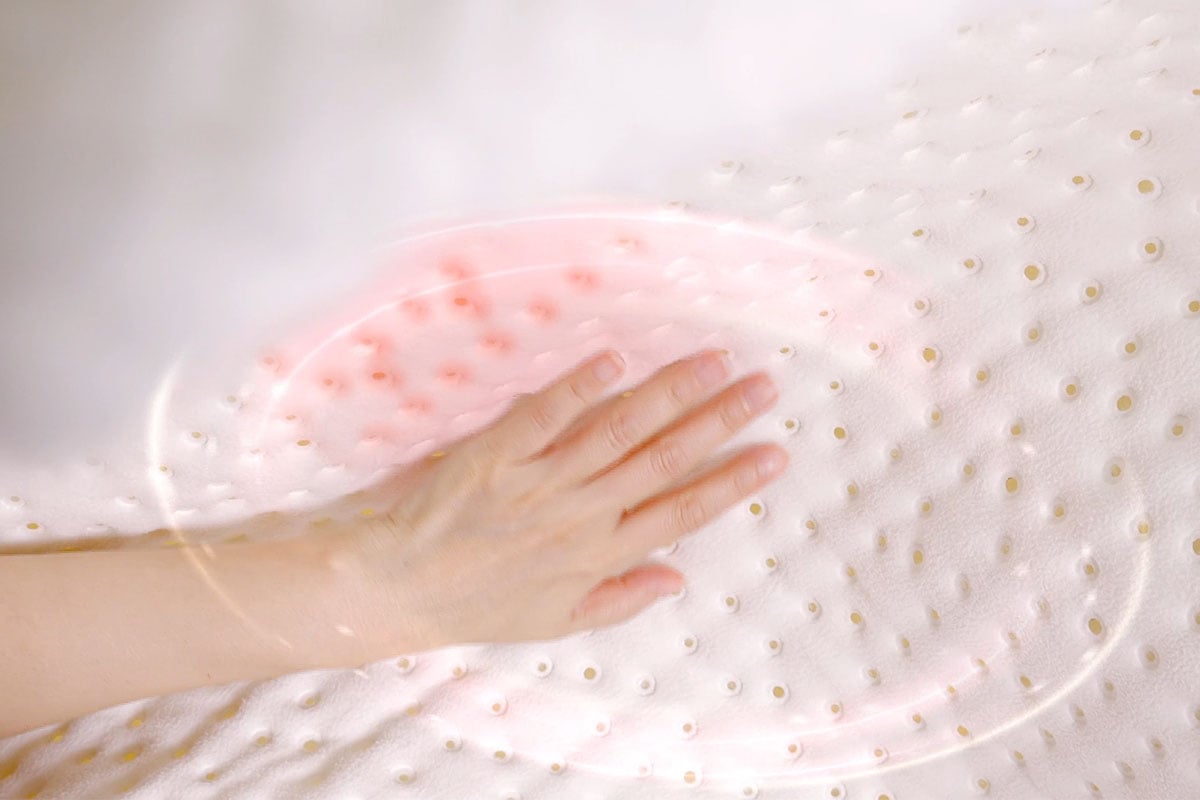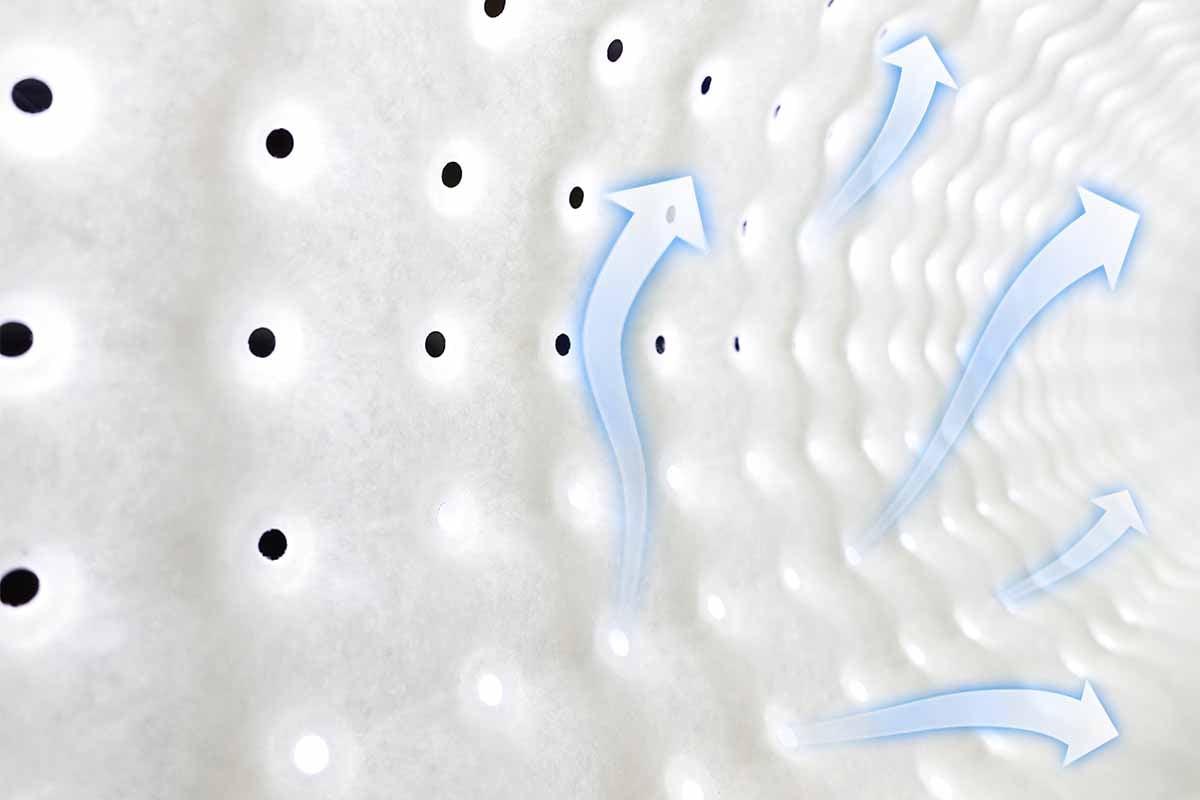
Temperature screening became widespread in homes and public places in the first half of 2020 as a result of the COVID-19 pandemic. Many people believe body temperature is a constant that is approximately 37 degrees Celsius, but that’s not the case.
According to a 2020 Stanford University study, the body temperature of humans has dropped by an average of 0.03 degrees Celsius every 10 years since the 19th century. The temperature of men has dropped by 0.59 degrees Celsius compared to their forebears, while the temperature of women has decreased by 0.32 degrees Celsius. This means that over the past 200 years, the normal body temperature has dropped from 37 degrees Celsius to 36.6 degrees Celsius.
A lower body temperature isn’t necessarily a good thing. According to the research of Japanese doctor Yumi Ishihara, the metabolism rate falls by 12 percent and immunity decreases by 30 percent for every 1 degree Celsius reduction in the body temperature. A lower body temperature means greater susceptibility to illness, which could in turn lead to chronic diseases and cancer.
There is a strong relationship between body temperature and immunity. A British study found that the higher the body temperature, the more bodies speed up a key defense system that fights tumors, wounds, and infections.
Staying in good health not only depends on maintaining a balanced diet and exercising regularly, but also sleeping well. Adjusting one’s body temperature can not only increase the quality of sleep, but also promote immunity to build a line of defense against disease.
A lack of sleep imbalances the immune system
This year, many people saw major upheavals to their jobs and lives as a result of the COVID-19 pandemic, creating physical and psychological stress. According to a recent report from Express Scripts, prescriptions for anti-insomnia, anti-anxiety, and antidepressant medication increased by 21 percent from January to March 2020.
The side effects resulting from long-term medication use can harm the body. The simplest and best prescription is to get enough sleep. Sleep is one of the main sources of energy, along with food and water.
An article in German periodical Archiv für Kriminologie indicated that humans are able to live without food and drink for a period of eight to 21 days. If they have sufficient drinking water, they can survive up to two months. However, the impairment of performance resulting from 24 hours without sleep is comparable to that caused by a blood alcohol concentration of 0.10 percent. In other words, the abilities to react and judge are comparable to those of a drunk driver. Moreover, going over 72 hours without sleep makes people more prone to visual and auditory hallucinations.
An American study found that even short-term sleep deprivation quickly and comprehensively affects the immune cells that fight cancer. Sleeping four hours a night will result in a 70 percent reduction in the number of natural killer cells circulating in the immune system compared to sleeping eight hours a night.
Insufficient sleep and sleep disorders have become global issues that must be addressed. Poor sleep makes people more prone to disease and may even affect their work and social interaction. That’s why getting a good night’s sleep has become more important than ever.
Climate change is a challenge to good sleep
What is disrupting your sleep? A Harvard University study found that climate change has reduced the time that humans spend sleeping, and predicted that if climate change trends remain constant, more and more people will develop sleep issues in the future.
The study found that a nighttime temperature increase of 1 degree Celsius produces an increase of approximately three nights of insufficient sleep per 100 individuals per month. If extrapolated across the current population of the United States, this would produce nearly nine million additional nights of insufficient sleep per month or approximately 110 million extra nights of insufficient sleep annually by 2050 for every 1 degree Celsius increase in the nighttime temperature.
The nighttime temperature affects sleep because the circadian rhythm affects the core body temperature. The core body temperature increases during the day and is the lowest at night during sleep. However, if the nighttime ambient temperature increases, you’ll start feeling hot and sweaty. The core body temperature can’t decrease, which will increase the sleep latency and affect sleep.
The recommended room temperature to induce drowsiness is 16 to 18 degrees Celsius or 60.8 to 64.4 degrees Fahrenheit. The U.S.’ National Sleep Foundation also recommends a humidity level of between 30 and 50 percent. Temperatures and humidity levels that are too high or too low are not ideal. Bedrooms should be quiet, cool, well-ventilated, and completely dark to effectively promote sleep.
Building a bed climate to improve sleep
During summer nights, it’s too hot to sleep wrapped up in a blanket, but sleeping without a blanket makes it easier to catch a cold. During winter nights, it’s cozy to bury yourself under blankets, but if the blanket is not warm enough or other bed products make the bed too hot, sleep will not come easily. This is why building the best bed climate is important.
Bed climate is also known as microclimate or sleep environment. People have unique sleeping temperatures, humidity levels, and air circulation environments, and different “bed climate environments” have a definite effect on sleep depth and duration.
A 2012 Japanese study found that the optimal bed climate temperature and humidity level for falling asleep are 32 to 34 degrees Celsius and 40 to 60 percent, respectively. However, it’s not easy to control the bed climate temperature, humidity level, and air circulation. That’s why Wellcare came up with Best Bed Climate (BBC) design, and applied it to electric underblankets and electric overblankets to help people easily create the most comfortable bed climate.
BBC design refers to Wellcare’s innovative design for bedroom elements, such as electric blankets (includes electric underblankets and electric overblankets) and foot warmer. Creating the best bed climate can help to improve the quality of sleep.
The core body temperature is higher during the day than at night because of the circadian rhythm. The core body temperature falls in the evening when you go to sleep, reaching the lowest point in the middle of the night. A Swiss study found that falling asleep becomes easier when we lower the core (deep) body temperature and raise the surface (skin) body temperature to narrow the gap between these two temperatures.
However, an excessively high bed climate temperature can increase the core body temperature. The human body will need to sweat more through the skin in order to maintain a constant body temperature. An article published in the periodical “Sleep” described an experiment where 16 subjects began using electric blankets at 2:30 a.m. As a result, their nighttime core temperature rose, causing them to wake up in the middle of the night and affecting their sleep. Many people have had this undesirable experience when using electric blankets.
BBC design is different

The key to falling asleep effortlessly is reducing the difference between the core body temperature and the surface body temperature to less than two degrees Celsius. Wellcare BBC Design offers electric blankets that can raise the surface body temperature to induce sleepiness. They were designed using innovative 4D DWF (Dynamic Warmth Flow) technology so that you won’t feel hot after you fall asleep and can get a refreshing night of good sleep in a ventilated and comfortable environment.
Wellcare BBC Design is derived from the breathable, warm, and natural characteristics of Wellcare 4D DWF. The core body temperature changes during the night, so electric blankets are used to raise the bed temperature, which increases the surface body temperature of distal parts such as the hands and feet and proximal parts. The difference between the core body temperature and the surface body temperature is reduced, inducing sleepiness.
One result of applying the unique characteristics of the innovative 4D DWF technology to bed climates is hundreds of circular holes that can quickly and evenly transfer strands of warmth to the body, allowing you to feel a warmth as natural as breathing.

The uniquely designed circular holes quickly and evenly transfer strands of warmth to the body.
4D DWF provides exceptional breathability to maintain the optimal sleep temperature and humidity level throughout the night. You no longer have to worry about waking up in the middle of the night because you're too hot or too cold. BBC Design allows everyone to get a good night’s rest, every single night. This is a secret that only those who have personally experienced BBC Design know!
BBC design customer testimonials
Case #1
Many people suffer from sleeplessness or insomnia. Their bodies are exhausted, but they just can’t fall asleep. A female Hong Kong customer shared her story with us. She told us that her busy work schedule made it hard for her to fall asleep. During cold days, her back and waist would tighten up and her hands and feet would become ice-cold, making sleep even more difficult.
We mentioned earlier that the core body temperature is higher during the day, reaching the highest point at 4 to 5 p.m. and then beginning to fall once it’s nighttime. The surface body temperature, or the temperature of the skin surface of the hands and feet, does the opposite. Narrowing the difference between these two temperatures can promote sleep.
This customer suffered from poor circulation and cold hands and feet. Her distal (hands and feet) and proximal (body) surface temperatures were lower, widening the gap with the core body temperature and hindering sleep.
We therefore suggested raising the bed temperature and quickly increasing the skin temperature to promote muscle relaxation and induce drowsiness. This customer told us after using a Wellcare electric blanket, “I only now realize what it’s like to sleep comfortably until the morning.”
Several of Wellcare’s electric blankets have two-hour timers. When the weather is cold or your muscles are tense, the blankets’ circular holes deliver waves of continuous warmth to your body, allowing your body to relax and become drowsy.
Case #2
I sweat when I’m awake, so will I be fine when I’m asleep? No!
Many people have had bad experiences with electric blankets, waking up in the middle of the night because they feel too hot, thereby affecting the quality of their sleep.
A female Spanish customer told us that she previously used an electric blanket from another brand, and became steadily hotter throughout the night. The blanket provided a continuous source of low heat, which built up as the night went on. The heat was unable to dissipate, so the customer often woke up in the middle of the night drenched in sweat.
Author Yohei Sugawara told Japantoday that if an electric blanket that continuously warms the body is used, it becomes harder for sweat to evaporate and the heat will continuously circulate inside the blanket. This prevents the core body temperature from decreasing.
After a person falls asleep, the surface temperature of the distal and proximal parts becomes equivalent and the core body temperature decreases. At this moment, the body only needs to maintain the minimum physical activity energy for sleep. However, if excess heat accumulates inside the blanket or the blanket temperature is too high, sleep will be affected.
The use of heavy quilts and electric blankets with insufficient breathability can make it too stifling or too hot inside the blanket and affect sleep quality. This customer told us that our product is breathable and refreshing, and the skin-friendly materials make her feel like she’s enveloped in a cloud. The BBC Design of our electric blankets adjusts the temperature in accordance with changes to the core body temperature, allowing you to sleep soundly.

Products with 4D DWF technology can deliver warmth more efficiently to create a comfortable temperature around you. Provide 360 degrees warmth flow circulation and can be 150% more breathable than normal electric underblankets!
Several of Wellcare’s electric blanket models come with eight-hour timers, giving users a breathable, fresh, and comfortable experience that lasts throughout the entire night.
Wellcare electric blankets: your best partner for good sleep
Traditional electric blankets overheat due to an imbalance in temperature, making users prone to overheating and perspiration and affecting sleep. That’s why the Wellcare team spent a long period of time studying the effects of temperature and electric blankets on sleep quality. The result is BBC design and electric blankets featuring 4D DWF technology.
The heat emitted by the 4D DWF circular holes merges with the cold outside air to produce warm and moist heat and create the ideal Best Bed Climate. You’ll fall asleep faster when your bed climate is breathable and comfortable.
Wellcare uses natural, non-pharmacological methods; meticulously selected materials; and innovative technology to create safe and high-quality products. We value feedback from our customers, and use it to continuously improve our products and services. Wellcare electric blankets are the perfect partner to help you relax and fall asleep in comfort.
If you are an importer in Europe that’s interested in selling Wellcare products, sign up for the program below. Click on the link below to reserve your spot today.


.png?width=512&name=united-kingdom%20(1).png)


